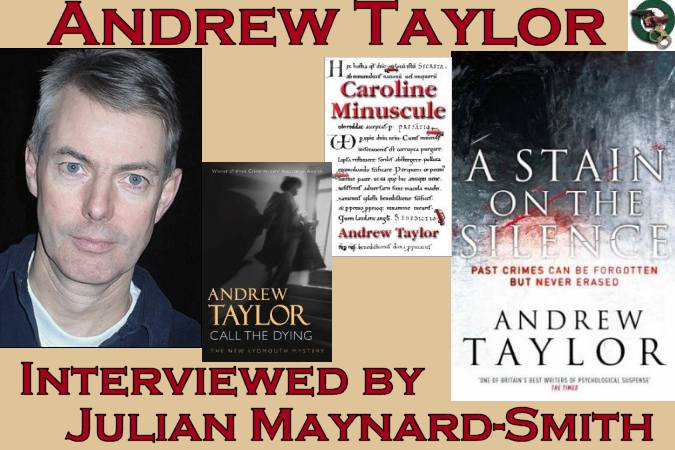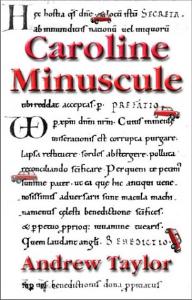

|
|
Since The Four Last Things (1997), all of your novels were set in the past. What motivated you to set your latest, A Stain on the Silence, in the present? I didn’t consciously choose to write novels set in the past – it just seemed to happen that way with the rest of the Roth Trilogy, the later Lydmouth novels and The American Boy. So I found myself actually looking forward (in more ways than one) to writing a novel set in the present, just for a change. There are different challenges, different possibilities, different problems. I try to resist getting stuck in a rut, which is perhaps the biggest occupational hazard faced by crime writers, apart from an unhealthy taste for substances like coffee. Your website explains that the novel started from three premises: ‘what if a childless man in his forties discovers that he has a daughter, the result of an affair 25 years earlier? What if the daughter is pregnant? And what if she's on the run for murder?’ Most mystery novels are essentially about the past haunting the present, but what drew you to this particular storyline? Children. The title – from Samuel Beckett – came first. Beckett was referring to his writing, but for many people, their children are far more important than their work: children are a way to leave a trace of yourself behind, a sort of immortality. But what happens when the children are missing, for whatever reason? That was the theme – and the plot came together from two real-life cases – a schoolboy who had had an affair with a matron at his school, and an emotionally vulnerable – and perhaps untrustworthy – woman accused of murdering her lover. Like many novels, this one was born when ideas collided. The American Boy has just come out in paperback in the US as An Unpardonable Crime – presumably because ‘The American Boy’ wouldn’t be a particularly memorable title in America! Are there any other ways in which the novel had to be adjusted to suit an American readership? And when you’re writing, do you ever have a particular type of reader in mind? The American publishers, Hyperion, were enormously enthusiastic about the book and didn’t change a thing, even the cover – apart from the title. They thought it might send out the wrong signals to US readers. So I came up with a shortlist of titles taken from Poe’s work, and we gradually whittled it down to An Unpardonable Crime. There was an irony here – when I first planned the book, I thought calling it The American Boy would play well in the States. It just shows how foolish it can be to try to predict other people’s marketing decisions. You’re the only author ever to win the CWA's Ellis Peters Historical Dagger twice: in 2001 for The Office of the Dead and in 2003 for The American Boy. How do you set about making history resonate with a contemporary readership, without sacrificing historical authenticity? Most contemporary readers are happy to travel through time as well as through space. A historical background works best when it reminds you what has changed about people and their lives, and what remains the same (a geographical background that’s different from your own works in just the same way). I’m as interested in the psychological and moral baggage that characters carry inside them as in the external features of their lives, and I think most readers are too. You need to get the concrete details as accurate as you can, of course, but parading your research is often counter-productive. The other point is that narrative and the interplay of characters are the most important things – if you don’t get those right, the best researched historical novel in the world will fall flat. Call the Dying, the latest in your Lydmouth series, was recently longlisted for Theakston's Old Peculier Crime Novel of the Year Award (an award for which An American Boy was shortlisted last year). Which of the many awards and nominations you have received means the most to you (or is that rather like asking a parent to pick a favourite child)? 
They all matter! But if I had to pick one, I’d go for the first – the John Creasey for best first crime novel. When the secretary of the Crime Writers Association rang up to tell me that Caroline Minuscule had won, I was truly flabbergasted – I’d never even heard of the CWA at that point. The award was a double boost – to morale and to my ailing finances. Naked to the Hangman, the next Lydmouth novel, is due out in October. Can you give us a taster of the plot, and a little background on what inspired it? This book started with a glimpse, courtesy of a friendly screenwriter, of DCI Richard Thornhill as a police officer for the British-run Palestine Mandate in the late 1940s. Nearly ten years later, the past pursues him to Lydmouth – where scandalous allegations have been made about Miss Awre's School of Dancing; the Ruispidge Charity's annual dance for young people is under threat; teenagers haunt the newly opened Italian coffee bar and yearn for fumbled intimacies in the sheltering darkness of the Rex Cinema; an Oxford don is looking for love; the Angel of Death wears khaki shorts and drives a Ford van. Oh, and the waters of the Lyd and the Minnow are rising higher than in living memory… In the introduction to your first ever novel, Caroline Minuscule, you mention the role of panic in your creative process, and how having a novel plan was more hindrance than help. How has your writing methodology changed over the years, and does panic still play a part when deadlines loom? Panic still plays a crucial role in my creative process. As for planning, it’s a tool that makes a good stick but a bad crutch. The only books I can plan to any extent are the Lydmouth ones, where I already know the setting and many of the characters – and in this case it’s not so much a plan as a skeletal first draft. Mostly though, the story emerges in the writing, and the plot has to be tidied up afterwards. The word ‘literary’ often occurs in reviews of your novels, and in my (admittedly biased) opinion, some of the best contemporary writing is in the genre of crime. Literary novels such as The Woman in White and the stories of Edgar Allan Poe are often described as being crime novels, and yet the literati can still be a bit sniffy about the crime genre. Why do you think this is so, and what would be your retort to the statement that crime novels are somehow not ‘real’ literature? I think it’s getting harder and harder to distinguish between a good novel with a crime in it and a good crime novel. Much crime fiction isn’t very good, and on the other hand a good deal of mainstream fiction isn’t very good either. Critics still tend to look down their noses at crime fiction. On the plus side, crime fiction can afford not to be pretentious, which makes it accessible. Labels about genre etc exist for convenience (which is fair enough) and, in some cases, from snobbery (which isn’t). We shouldn’t take them too seriously as judgements, though. Let posterity do that. Another (in my opinion) spurious distinction is between ‘female’ and ‘male’ crime writers. Certainly, male writers (like you) can write some of the most psychologically complex domestic dramas, and it’s decades since women conquered traditionally ‘male’ areas of crime writing such as PIs and serial killers. Do you think the male/female distinction in crime writing is finally on the way out? I hope so, for the sake of all concerned. What are you working on now? A novel which will draw on a fictional version of a celebrated Victorian murder case, with which my grandmother’s family had a connection. That’s just one ingredient in a seething hotpot of possibilities…

Published by
Michael Joseph in hardback £12.99 |

| Webmaster: Tony 'Grog' Roberts [Contact] |